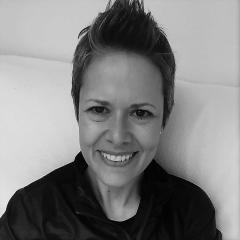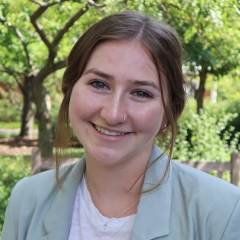

In late April 2022, I arrived in Finland to launch an interdisciplinary and highly collaborative research project with the Human Sciences - Computing Interaction group in the Department of Digital Humanities at the University of Helsinki. Together we are working with bibliodata to evaluate the impact of the first and largest academy of arts and letters in seventeenth-century Central Europe through the lens of its members’ publications.
This visit was enabled by a Friends of Fulbright Finland Alumni Enrichment Award, which supports a return visit to Finland in furtherance of original grant objectives. As I wrap up this visit five weeks later, I am reminded of my Fulbright experience in Finland 11 years ago.
Arriving in Finland for the first time, I did not know what to expect. I knew I would be working with computer scientists in the Semantic Computing Research Group (SeCo) at Aalto University on a humanities linked open data project. I was excited by the opportunity to spend several months delving into the theoretical and practical aspects of this cutting-edge technology.
What happened, however, was something that I could not predict. What began as a semester-long project would become a multi-year collaboration. Working with Finnish colleagues in an interdisciplinary and highly collaborative research environment in a sustained manner got the wheels turning in my mind about how I could help to enable similar opportunities for multi-disciplinary teams to leverage data and technology to undertake humanities-related research at my home institution. This experience would set the stage for the next phase of my academic career.
"This experience would set the stage for the next phase of my academic career."
Soon after returning to Colorado, I organized a cross-campus working group of colleagues to investigate and engage faculty and student interest in digital humanities. Our work culminated in a detailed report and recommendations, the main one being the establishment of a digital scholarship center. Ultimately, our concept merged with one for a campus research data center to become the Center for Research Data and Digital Scholarship, a research center and partnership between the University Libraries and campus Research Computing that was approved in 2016. As a founding director and currently executive director, the assistant vice chancellor of Research Computing and I lead a talented team of data, scholarly communication, and computing experts.
The head of the SeCo also became director of a digital humanities center, the Helsinki Centre for Digital Humanities, which was launched as a strategic profiling initiative in 2016. The Department of Digital Humanities, which hosted my research this spring, is closely associated with this center. One of the special things I was able to do during this grant period was participate in the Helsinki Digital Humanities Hackathon, an annual event that brings together humanists, social scientists, and computer scientists to undertake an interdisciplinary research project from start to finish in ten days. Watching the teams work, it somehow felt like my original Fulbright experience had come full circle.
While I could not know what significance my initial visit to Finland would have on my research and career, I knew as a Fulbright experience it could well be transformative. As this visit draws to a close, I am excited to see what comes next. I encourage anyone who is interested in developing their professional and academic careers in new directions to apply for a Fulbright. It could easily lead somewhere unexpected.



